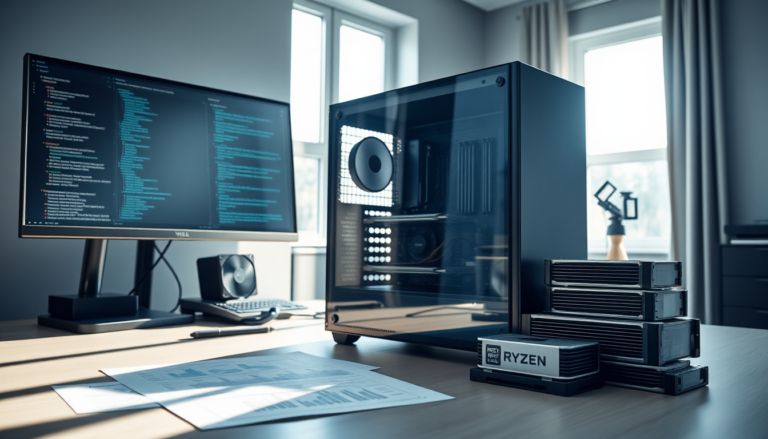Argomenti trattati
In the world of computing, **CPU reliability** is a vital concern, especially as users strive for optimal performance from their systems. Recently, the Ryzen 7 5800X has been at the center of attention due to significant stability issues reported by some users. This raises an important question: how viable is this popular processor for the long haul? While Ryzen CPUs have a reputation for being robust, the troubling case of the **5800X** has sparked broader discussions about *CPU degradation* and recovery techniques.
Unveiling the Instability of the Ryzen 7 5800X
When it comes to the **Ryzen 7 5800X**, users generally expect a high-performance experience. However, a recent video by YouTuber **Tech Yes City** showcased a scenario that contradicts this expectation. After purchasing a second-hand 5800X from a seller who struggled to stabilize the chip, the YouTuber set out to diagnose the root of its failures. Alarmingly, the chip reportedly ceased functioning properly after just a year of use, raising concerns about its longevity.
During an initial examination, Tech Yes City discovered that the CPU had several bent pins—a common culprit in hardware failures. By carefully straightening these pins, the YouTuber attempted to breathe new life into the chip. The first test involved booting the CPU into the BIOS for an extended period, which it passed without crashing, suggesting that the core functionality remained intact. However, the real test of stability came during a grueling **3-hour OCCT stress test**, where the chip ultimately failed, highlighting its severe instability.
The Downclocking Solution
In light of these instability issues, Tech Yes City turned to a well-known technique: **downclocking**. By tweaking the BIOS settings and applying a negative 300 MHz offset using AMD’s **Precision Boost Overdrive (PBO)** tools, the YouTuber aimed to ease the pressure on the CPU. Following these adjustments, the 5800X successfully completed a one-hour stress test, indicating that downclocking had alleviated some of the performance degradation.
Interestingly, even after reducing the clock speed, the Ryzen 7 5800X remained competitive in gaming scenarios. Take the popular title **Call of Duty: Black Ops 6**; the downclocked CPU achieved an impressive average of **152 frames per second**, outperforming the Ryzen 7 5700X, which managed 147 FPS. This outcome reveals that while the chip may have suffered from degradation, it still held its ground in performance metrics, showcasing the resilience of **Ryzen architecture** under pressure.
Understanding CPU Degradation and Its Implications
The phenomenon of CPU degradation isn’t something to take lightly. Ideally, CPUs are built to last several years without significant performance dips. However, the case of the Ryzen 7 5800X prompts a reevaluation of user expectations and the potential need for proactive measures to maintain stability. The downclocking technique employed by Tech Yes City serves as a temporary fix, reminiscent of practices seen with **Intel’s Raptor Lake CPUs** before firmware updates aimed to resolve architectural issues.
In conclusion, while the Ryzen 7 5800X is undeniably a powerful processor, the challenges faced by users experiencing stability issues underline the importance of understanding **CPU maintenance** and performance management. By employing strategies like downclocking, users can better navigate the complexities of CPU degradation and continue to enjoy satisfactory performance from their systems. As technology evolves, staying informed on these matters will prove invaluable for both casual users and enthusiasts alike. So, are you ready to tackle these challenges head-on?

